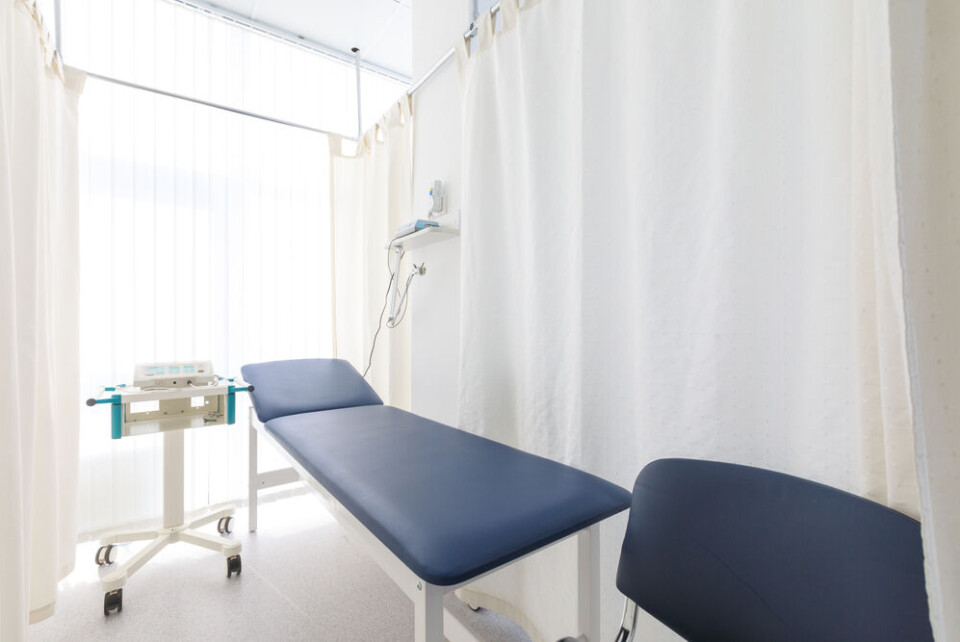-
Mysterious boom rattles residents in south-west France
Local community turns to social media for answers
-
France tightens reimbursement rules for flight delays or cancellations
New measures include mandatory mediation and new claim procedures
-
What snow conditions look like for skiers across French Alps and Pyrenees
Ski resorts are expected to get busier as school holidays begin this weekend
Doctors oppose plans for video consultations at French train stations
They recommend improving rail services to isolated areas instead

France’s Order of Physicians says it is “deeply concerned" about plans to open 300 remote medical consultation centres in French train stations.
The rail operator SNCF said on Friday that it wants to create the ‘telemedicine spaces’ by 2028 in a bid to help combat so-called medical deserts – regions where the public have inadequate access to healthcare.
Read more: Health cabins: virtual GP visits becoming more popular in France
However the medical practitioners’ regulator does not approve, saying this will “divert health professionals, who will thus be less available to practise in the most vulnerable areas.”
It suggested instead that "rail services to the most isolated areas should be improved" to attract health professionals to these locations.
#Communiquédepresse📰 Alors que la SNCF prévoit l'installation de boxes de télé-consultations dans 300 gares, l'Ordre s'inquiète des conséquences du développement d'une telle activité consacrant les inégalités d'accès aux soins et favorisant la dérégulation du système de santé.👇 pic.twitter.com/86nLbTMiCz
— Ordre des Médecins (@ordre_medecins) November 20, 2023
Patients examined remotely
SNCF’s proposal is for a nurse to always be present on site but that each patient is examined remotely via video link with a doctor based in France, it said. For example the nurse puts the stethoscope on your heart and a doctor will be able to listen remotely to make a health diagnosis.
Modular buildings of 15-square-metres are to be installed initially by Loxamed, a company which designs modules specially adapted for mobile healthcare, which were used in particular during the pandemic to carry out screenings.
Loxamed plans to work with regional health teams to hire nurses and private doctors to provide teleconsultations.
Read more: How can I see a doctor at my local French pharmacy?
The French doctors' union (UFML) has also strongly denounced the SNCF and Loxamed initiative, saying it is a new example of the development of "lucrative low-cost medicine" by commercial organisations.
"There can be no good medicine that comes from the touch of a button, at a distance, from a doctor who does not know the patient," the union said.
Medical desertification
These concerns come as the health branch of consumer association UFC-Que Choisir attacks the French government for inaction around medical deserts. The association has released a study on the "dramatic worsening" of medical demographics.
UFC-Que Choisir has updated its interactive map of inequality in "direct access" to doctors (GPs, gynaecologists, ophthalmologists and paediatricians) which was developed in 2022 based on public data.
"Unsurprisingly, medical desertification is increasing due to the increase in needs" and a "wave of retirements", it said.
In fact UFC have found that nearly two out of ten French people now live in a medical desert.
The study combines two criteria: the geographical distance of doctors - the "deserts" being characterised by a density 60% lower than the average for specialists located less than 45 minutes away, or 30 minutes for general practitioners - and the prices charged.
‘Catastrophic’ study findings
Once practitioners which charge above the regulated rate have been excluded, "the situation is absolutely catastrophic" states UFC, with more than one in two children living in a place without paediatricians, 59.3% of French people in a medical desert for ophthalmologists and 69.6% of women for gynaecologists.
GPs are more available, with 2.6% of patients classified as resident in medical deserts - however UFC says that “23.7% of people nevertheless find it difficult to access this essential link in the care pathway within a 30-minute drive.”
Between 2021 and 2023, 44.4% of the population "saw accessibility to GPs deteriorate".
Read more: How to see a doctor if you cannot sign up with GP in France
Calls to the state for change
UFC-Que choisir has now filed an appeal with the Conseil d’Etat (France’s highest administrative court) to denounce the government's "inaction" in the face of growing inequalities in access to care.
The consumer association has criticised the "stubborn refusal of the authorities to regulate the installation of doctors."
"After years of negotiations with political decision-makers that remain unanswered, UFC-Que choisir is now referring the matter to the Conseil d’Etat to have the culpable government inaction established and sanctioned" and "to defend the constitutional right to health," the association wrote in a statement.
It also urges the state to act and invites the French to sign and "massively share" its petition.
Read also
What is known about the new Covid subvariant spreading through France?
Long Covid sufferers in France want official recognition by doctors
























